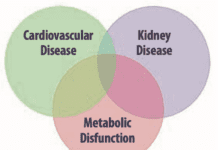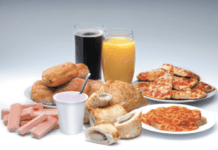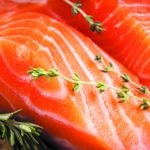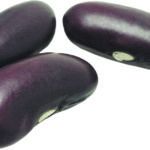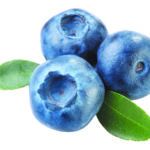Home Search
Cancer - search results
If you're not happy with the results, please do another search
Mediterranean Diet: Health vs. Hype
As a reader of this newsletter, you know that the Mediterranean diet has been associated with a wide range of health benefits. Most recently, weve reported on findings from the Spanish PREDIMED study linking such a diet to reduced risk of heart disease (June 2013) and cognitive decline (August 2013). Other studies have suggested preventive benefits against certain cancers, diabetes, Parkinsons disease and depression. The Dietary Guidelines for Americans recommends the Mediterranean diet as one…
Does Fish Oil Really Raise Prostate Cancer Risk?
Over and over again, youve read in the pages of this newsletter and elsewhere that eating fish like salmon high in omega-3 fatty acids is good for you. Youve seen countless ads touting the similar benefits of fish-oil pills containing those same omega-3s (EPA and DHA). Now suddenly comes a flurry of headlines suggesting a scary downside to these health-promoting omega-3s, at least for men: High Levels of Fish Oil May Boost Risk for Prostate Cancer, Omega-3 Supplement Taken By Millions Linked To Aggressive Prostate Cancer.
Beans of All Kinds Equally Good for You
You already know beans are good for you: The Dietary Guidelines for Americans recommend that women consume 1 1/2 cups of beans and other legumes weekly, or 1 cup for ages 51-plus, and that men eat 2 cups a week, 1 1/2 cups after age 50. Moreover, beans and other legumes are the only type of food that the Guidelines promote in two different categories-as part of the Protein Foods Group (along with meats, poultry and fish) and as part of the Vegetable Group, because they are excellent sources of dietary fiber and nutrients such as folate and potassium.
Should You Try Heart-Healthier Red Meat Alternatives?
As a reader of this newsletter, youre already aware that consumption of red meat has been linked to increased risk of heart disease and colorectal cancer. So youre exercising portion control and trying to eat more lean poultry and fish. But sometimes, well, beef is whats for dinner.
Blueberries Found to Boost Blood-Vessel Function
A pair of randomized, controlled trials-considered the gold standard for scientific research-have linked eating blueberries to improved blood-vessel function. Jeremy Spencer, PhD, of the University of Reading in England, and colleagues reported in the American Journal of Clinical Nutrition: Our data suggest that consumption of blueberries at dietary intakes may have public health relevance in maintaining circulatory function.
Q: I recently attended an informational program on prostate cancer at which I...
Answer : A The concern about flaxseed oil-and, to a much lesser extent, canola oil-stems from the alphalinolenic acid (ALA) content of these oils.
Q: If you dont have a family history of breast cancer, do the cardiovascular...
Answer : AJoel B. Mason, MD, Tufts professor of medicine and nutrition and director of the HNRCA Vitamins & Carcinogenesis Laboratory, replies: In general, the increased risk of cancer associated with alcoholic beverages is observed...
Q: Is sauerkraut anticarcinogenic?
Answer : Cabbage, from which sauerkraut is made, is a cruciferous vegetable (like broccoli).
Q: Lately my primary care physician has started shilling for a combination of fish...
Answer : A First identified in 1957, coenzyme Q-10 (CoQ-10) is a vitamin-like substance found throughout the body, but especially in the heart, liver, kidneys and pancreas.
Q: I take a multivitamin with my morning cup of tea. Do I need...
Answer : In general, theres no need to be concerned about tea blocking the absorption of vitamins or other nutrients, according to Jeffrey B. Blumberg, PhD, director of the Antioxidants Research Laboratory at Tufts Jean Mayer USDA Human Nutrition Research Center on Aging...



